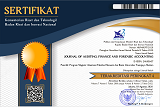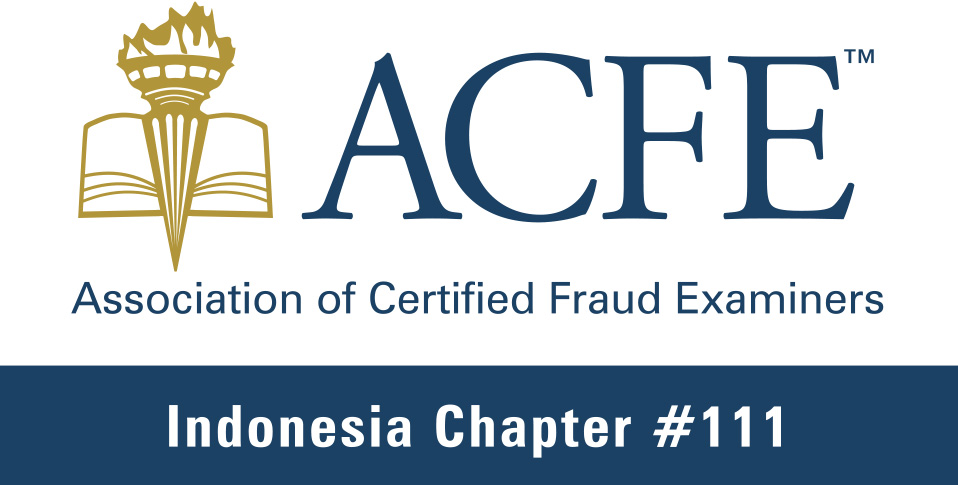The Impact of Ethical Judgment, Locus of Control, and Organizational Commitments to Whistleblowing
Abstract
This research aims at examining the influence of ethical judgment, locus of control and organizational commitment of auditor intention to whistleblowing. The population of this research was all internal auditors in Central Java Inspectorate, Semarang Regency and Semarang City. Data used in this research were primary data, which were obtained with questionnaire survey method. Analysis method used was multiple regression. The result of this research showed that ethical judgement, locus of control and organizational commitments have positive and significant influence to auditor intention in doing whistleblowing. Meanwhile, gender has no significant influence to whistleblowing. Besides, the age has significant impact toward negative to whistleblowing intensity.
Keywords
Full Text:
PDFReferences
Ahmad, Syahrul. A., M. Smith, dan Z. Ismail, dan R. M. Yunos: 2012, ‘Internal Whistleblowing Intentions: A Study Demographic and Individual Factors’, Journal of Modern Accounting and Auditing, ISSN 1548-6583 Vol. 8, No. 11, 1632-1645.
Arnold, D. dan Ponemon, L. 1991. ”Internal Auditors’ Perception of Whistleblowing and the Influence of Moral Reasoning; An Experiment”. Auditing: A Journal of Theory and Practice, 1-15.
Brief, A. P., & Motowidlo, S. J. (1986). Prosocial organizational behaviors. The Academy of Management Review, 11(4), 710-725.
Chiu, R. K. (2002). Ethical judgement, locus of control, and whistleblowing intention: A case study of mainland Chinese MBA students. Managerial Auditing Journal, 17(9), 581-587.
Chiu, R. K. (2003). Ethical judgment and whistleblowing intention: Examining the moderating role of locus of control. Journal of Business Ethics, 43(1/2), 65-74.
Duska, R., B. R. Duska, dan Julie Ragatz: 2011, Accounting Ethics, Second Edition (John Wiley & Sons: Amerika Serikat).
Donnelly, D. P., Quirin, J. J., & O'Bryan, D. (2003). Auditor acceptance of dysfunctional audit behavior: An explanatory model using auditors' personal characteristics. Behavioral Research in Accounting, 15, 87-110.
Dozier, J. B., & Miceli, M. P. (1985). Potential predictors of whistle-blowing: A prosocial behavior perspective. Academy of Management Review, 10(4), 823 836.
Falah, Syaikhul. 2006. Pengaruh Budaya Etis Organisasi dan Orientasi Etika Terhadap Sensitivitas Etika (Studi Empiris Tentang Pemeriksaan Internal di Bawasda Pemda Papua). Tesis. Program Pascasarjana. Universitas Diponegoro. Semarang.
Ghozali, I. 2011. Aplikasi Analisis Multivariate dengan Program IBM SPSS 19. 5 ed. Semarang: Badan Penerbitan Universitas Diponegoro.
Kell, W.G., R.N. Johnson dan W.C. Boynton. 2002. Modern Auditing. Edisi Ketujuh. Jilid I. Jakarta: Penerbit Erlangga.
Keraf, Sonny. 2008. Etika Bisnis, Penerbit Kanisius, Yogyakarta.
Komite Nasional Kebijakan Governance (KNKG). (2008). Pedoman Umum GCG Indonesia, Jakarta.
Kreitner, Robert and Angelo Kinicki. 2005. PerilakuOrganisasi (Orgaizational Behavior). Jakarta: Salemba Empat.
Kuryanto, Benny & Muchamad Syafrudin. 2011. Pengaruh Modal Intelektual Terhadap Kinerja Perusahaan. Makalah Disampaikan dalam Simposium Nasional Akuntansi XI. Pontianak: 23-24 Juli.
Lubis, Haslinda. 2009. Pengaruh Keahlian, Independensi, Kecakapan Profesional, dan Kepatuhan pada Kode Etik terhadap Kualitas Auditor pada Inspektorat Provinsi Sumatera Utara, (Tesis tidak dipublikasikan, Universitas Sumatera Utara).
Maryani, T. & U. Ludigdo. (2001).Survei Atas Faktor-Faktor yang Mempengaruhi Sikap dan Perilaku Etis Akuntan. Jurnal TEMA 2 (1): 49-62.
Mesmer-Magnus, J. R., & Viswesvaran, C. (2005). Whistleblowing in organizations: An examination of correlates of whistleblowing intentions, actions, and retaliation. Journal of Business Ethics, 62(3), 277-297.
Sulistomo, A., and Prastiwi, A. (2011). Persepsi Mahasiswa Akuntansi Terhadap Pengungkapan Kecurangan. Skripsi, Universitas Diponegoro, Semarang.
Taylor, E. Z., & Curtis, M. B. (2009). An examination of the layers of workplace influences in ethical judgments: Whistleblowing likelihood and perseverance in public accounting. Journal of Business Ethics, 93(1), 21–37.
DOI: https://doi.org/10.21107/jaffa.v6i2.4937
Refbacks
- There are currently no refbacks.
Our Journal indexed by:
Our support tools using:



This work is licensed under a Creative Commons Attribution 4.0 International License.












